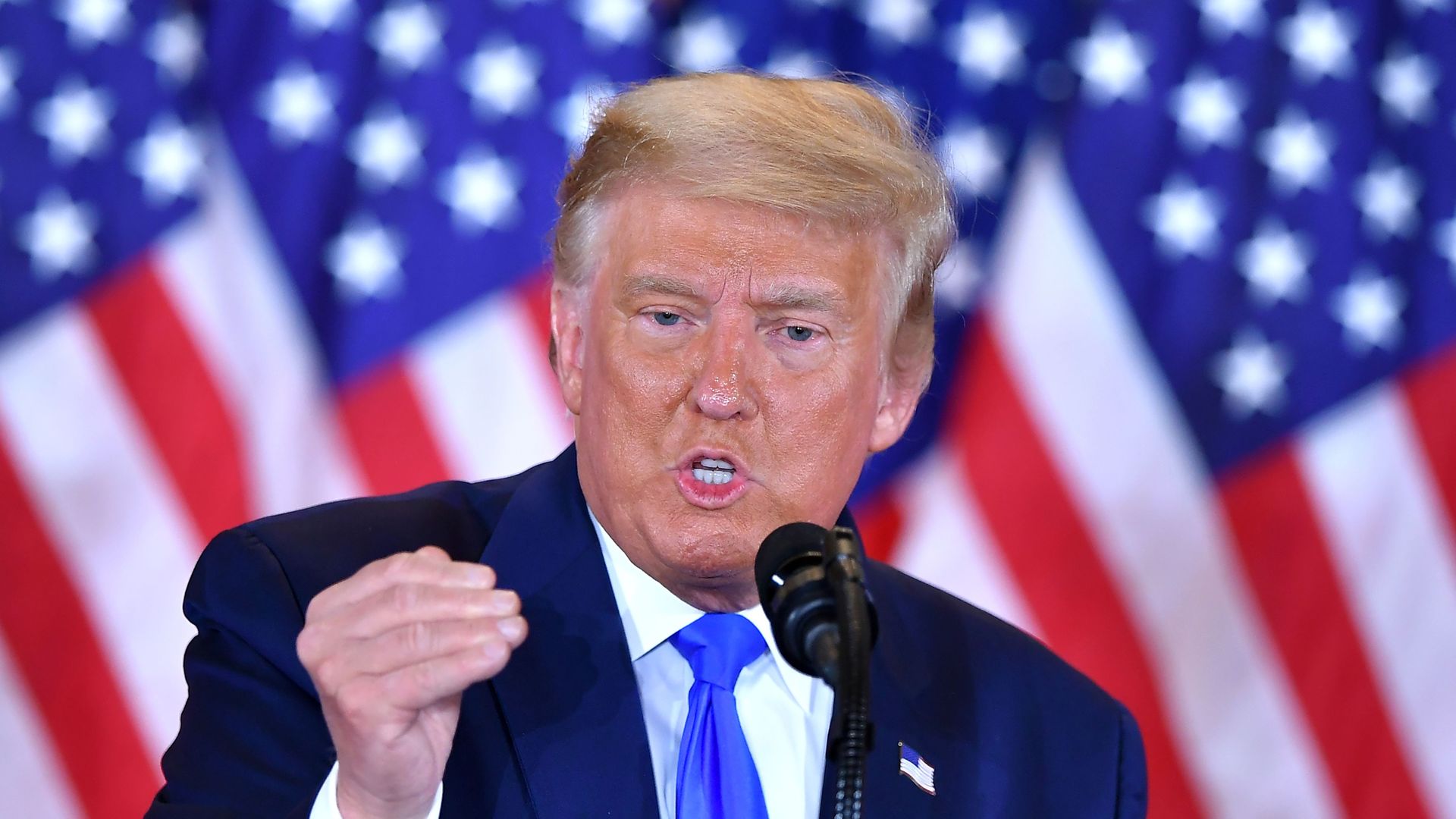Trump's narrow path to the Supreme Court
Add Axios as your preferred source to
see more of our stories on Google.

Donald Trump. Photo: MANDEL NGAN / Getty Images
The Supreme Court is unlikely to decide this election.
The big picture: The Trump campaign has filed multiple lawsuits in the hours since the president declared that “we will be going to the Supreme Court.” But election-law experts say it's still a long shot that the justices will decide the next president.
What they're saying: Experts say they simply don’t see strong vehicles emerging for a Bush v. Gore sequel — with the important caveat that it’s too early to reach any firm conclusions while votes are still being counted.
Where it stands: In Pennsylvania, the biggest controversy is the state's decision to count mail-in ballots that were mailed by Nov. 3, but arrived later.
- A challenge to that extension is already pending at the Supreme Court and in a legal filing Wednesday the Trump campaign sought to participate in that case.
- Trump campaign manager Bill Stepien told reporters Wednesday afternoon that they are "declaring a victory in Pennsylvania" and "have a high degree of certainty the margin won't be close."
Between the lines: Four conservative Supreme Court justices have already expressed deep misgivings about extended ballot deadlines, and could take up a challenge to Pennsylvania’s extension at any time.
- But that’s only likely to happen, experts said, if those late-arriving votes are the tipping point in Pennsylvania — and if Pennsylvania is the tipping point nationwide.
- While the overall number of mail-in ballots this year is huge, the number of late-arriving mail-in ballots is believed to be pretty small, and that’s where the controversy is.
- If Biden wins the state without those ballots, then a lawsuit over them wouldn’t change the outcome. And depending on outcomes in Arizona and Nevada, Biden might not need Pennsylvania at all, making protracted litigation there even less meaningful.
In Wisconsin, the Trump campaign has already said it intends to seek a recount.
- Wisconsin conducted a recount after the 2016 election; it ended up only changing 131 votes.
- There could be more than that this time because mail ballots have more opportunities for error than in-person voting. But finding enough irregularities to overcome a 20,000-vote deficit would be a hard road.
In Michigan, the campaign is suing for access to vote-counting operations, and to stop the counting until then. It has filed a similar suit in Pennsylvania.
- Filing a lawsuit is no guarantee that it’ll win, that it’ll find anything scandalous if it gets that access, or that anything it does find would change the outcome in the state.
The bottom line: As more votes are counted and potentially recounted, it's possible that a controversy over a razor-thin margin in a tipping-point state will be powerful enough to propel the election all the way to the Supreme Court. But that doesn't mean it's likely.

